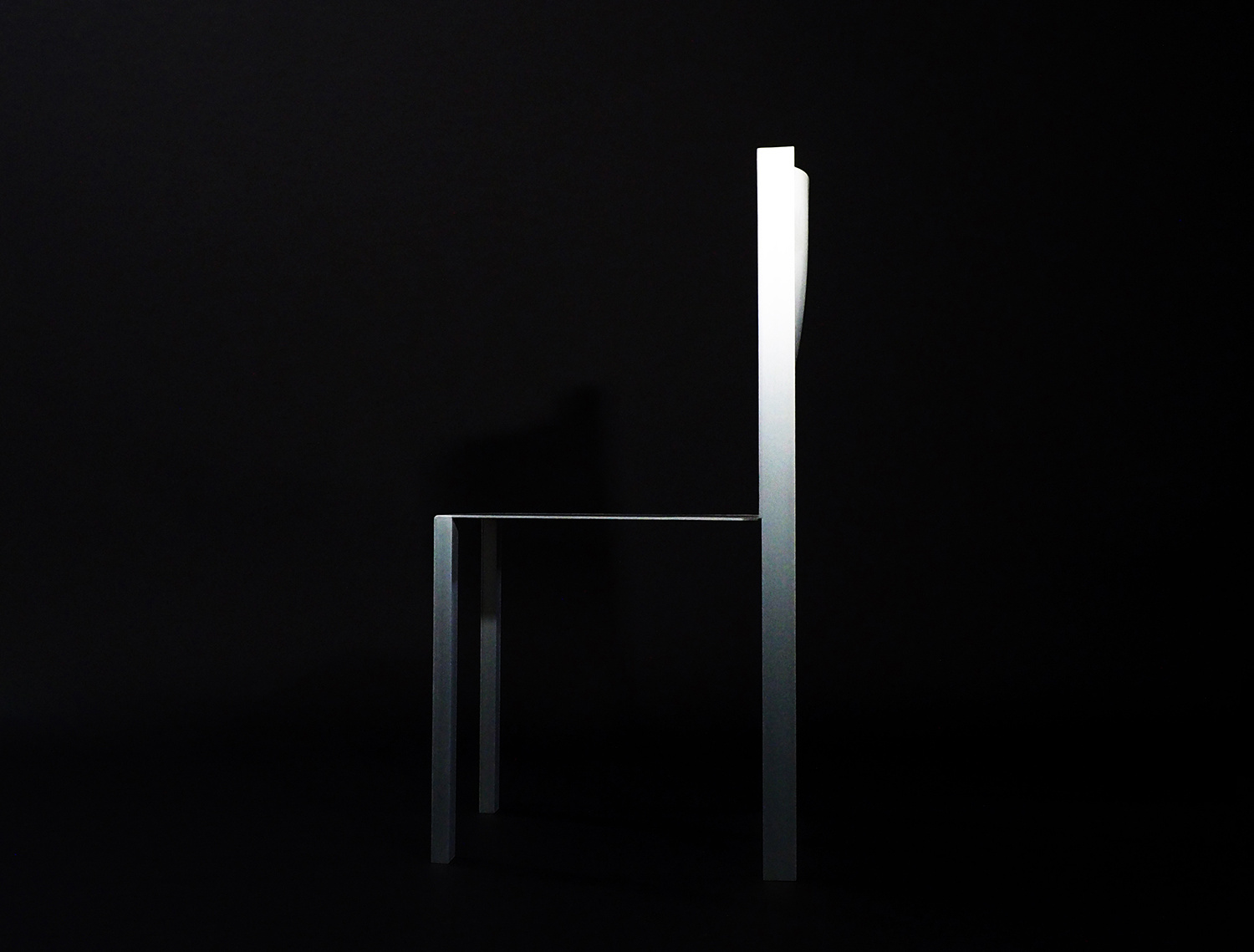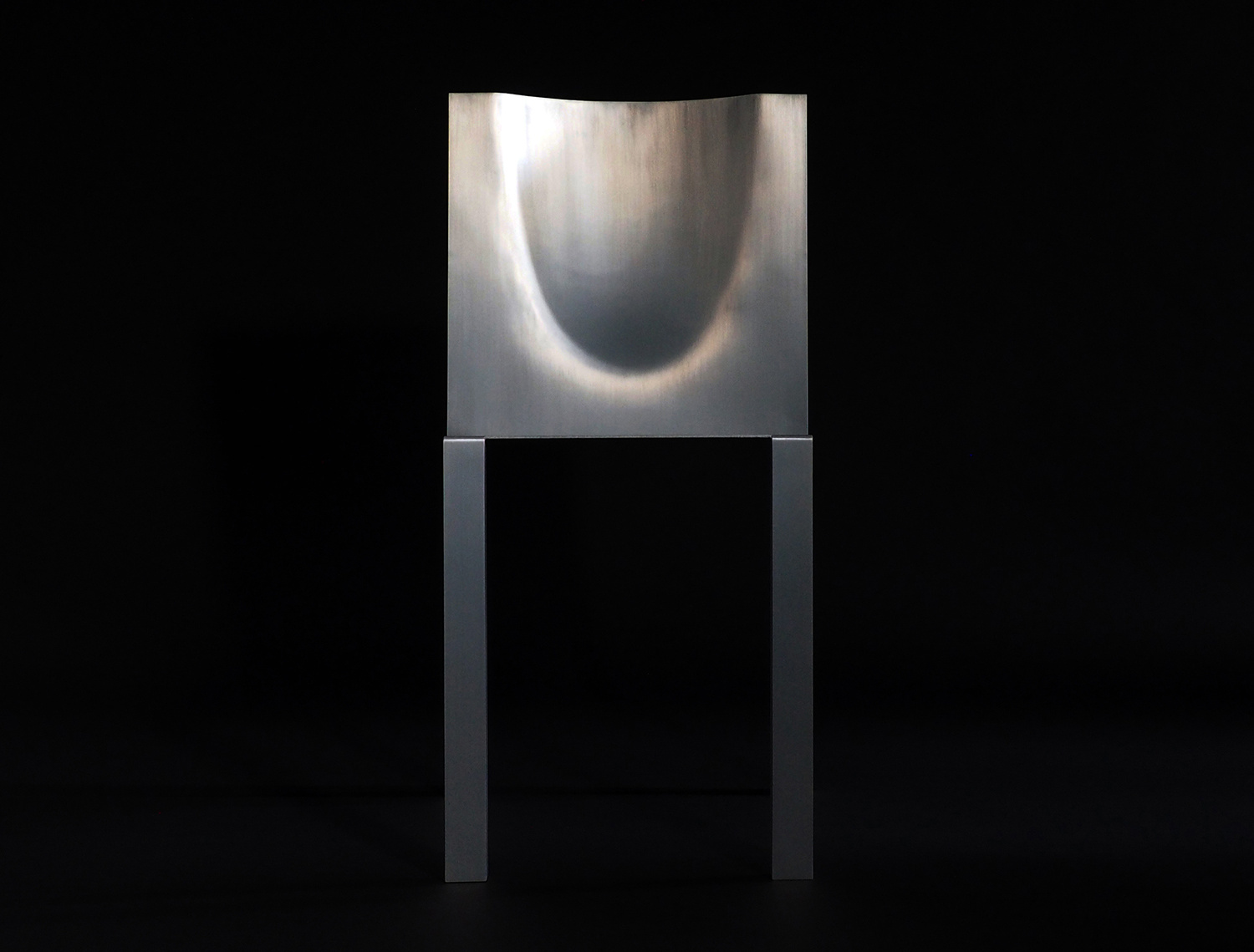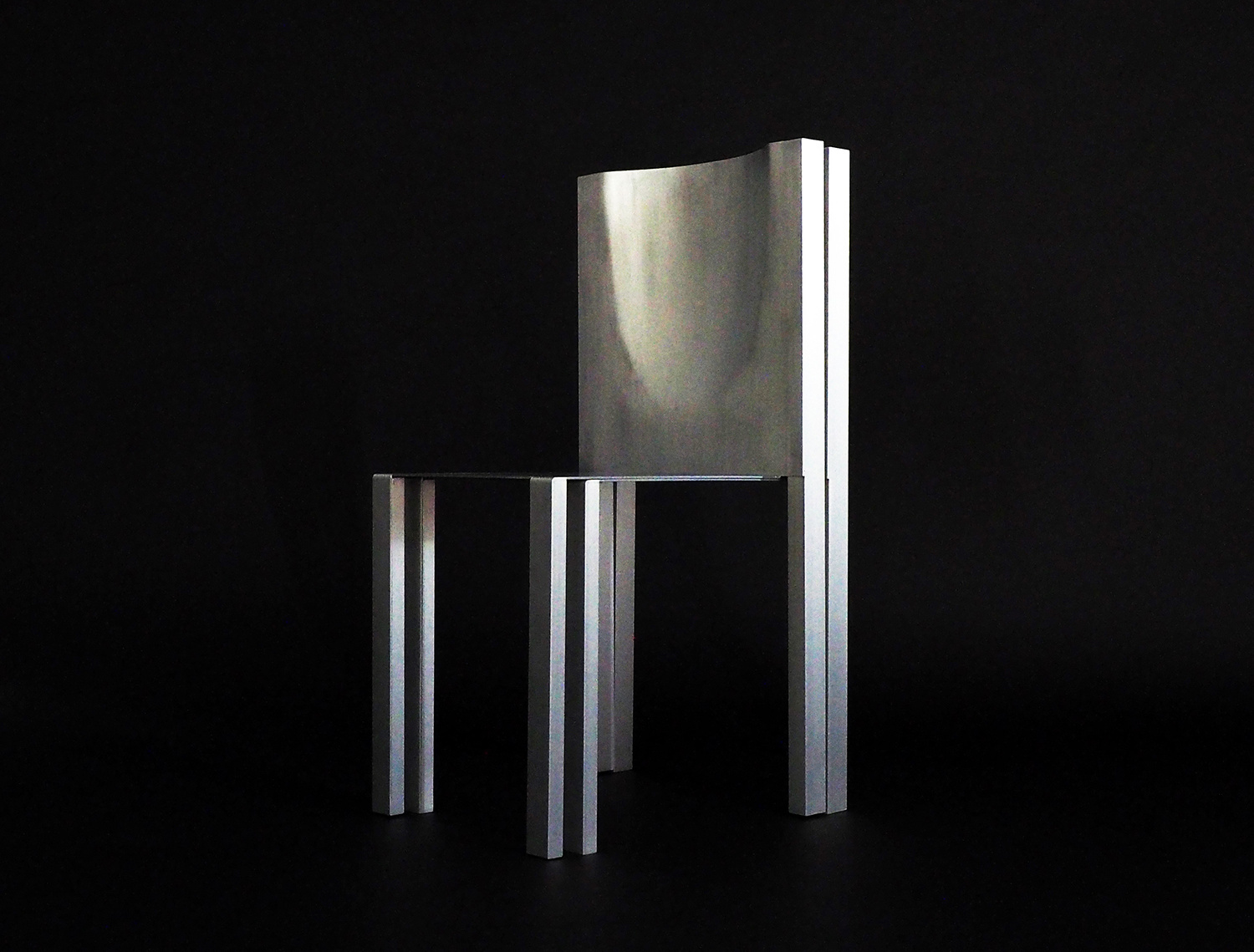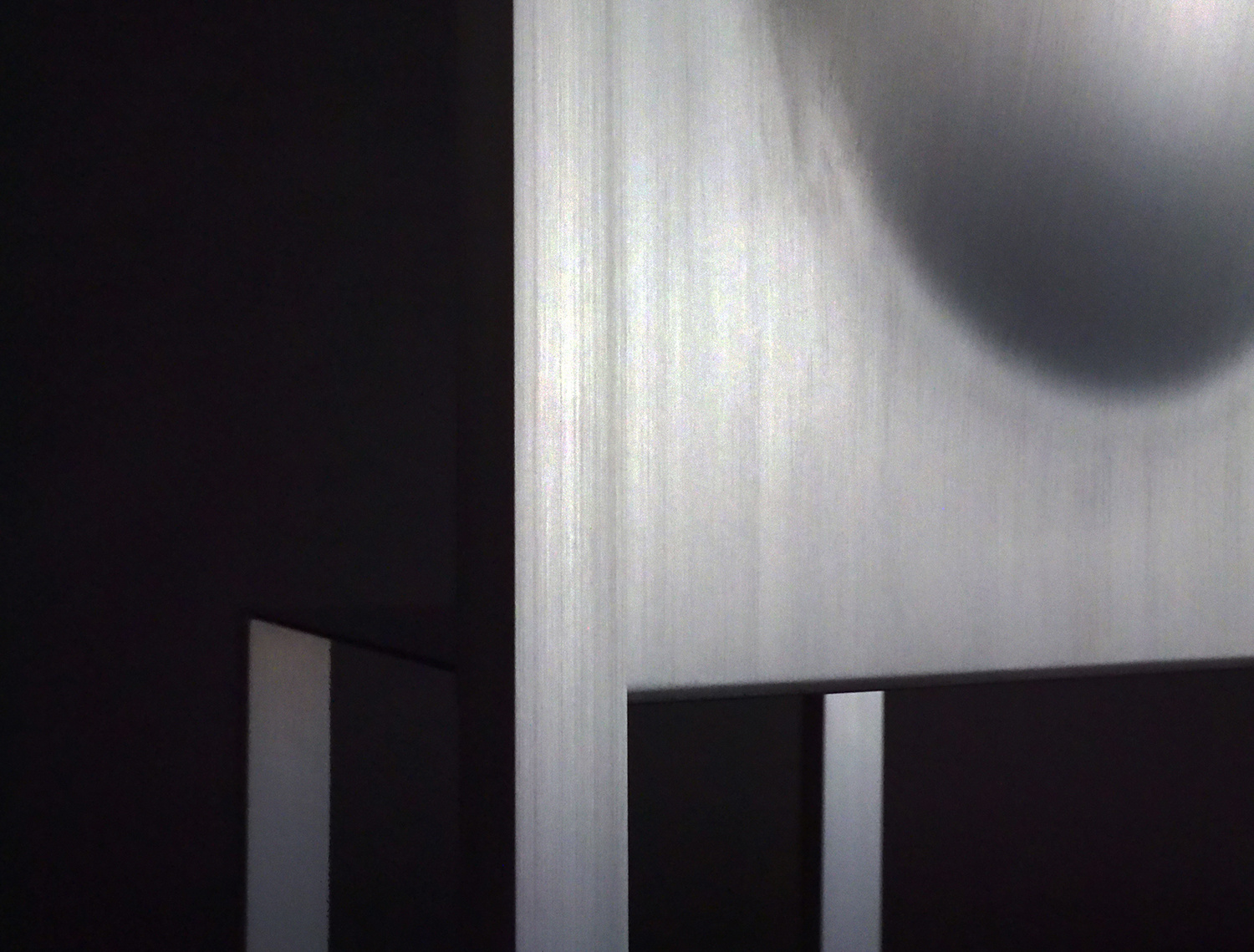Ghost is a minimalist chair created by Tokyo-based designer Toshiki Omatsu. The chair’s most radical gesture lies in what it removes rather than what it adds. By eliminating the traditional crosspieces that typically support a seat, Omatsu creates a surface of breathtaking thinness – just 3mm of aluminum stretched taut like a metallic membrane. “It will not collapse, but it is not stable,” the designer observes, acknowledging the productive tension he has introduced. This instability becomes a feature rather than a flaw, creating what he calls “tension for the person sitting on it” that heightens awareness of the act of seating itself.
The chair’s most intimate innovation lies in its backrest, shaped through incremental forming – a cutting-edge manufacturing process that uses a high-speed rotating rod to press and deform metal without molds. This technology, borrowed from aerospace and automotive industries, allows for the creation of subtle, organic curves that would be impossible through traditional metalworking. The resulting recess cradles the human form with surprising comfort, creating what Omatsu describes as “a sense of comfort and security” that contradicts the chair’s ethereal appearance.
This technological sophistication connects GHOST to a broader lineage of aluminum furniture that stretches back to the aerospace optimism of the 1960s. Yet where earlier aluminum chairs like those by Charles and Ray Eames celebrated the material’s industrial heritage through visible structure and mechanical joinery, GHOST pursues immateriality. The entire seat, back, and portions of the front legs emerge from a single aluminum sheet – a manufacturing tour de force that conceals its own complexity.
Omatsu positions this contradiction as emblematic of our current moment, where technology increasingly operates through invisibility and our relationship with objects becomes more ethereal. In an age of touch screens and cloud computing, GHOST offers a physical manifestation of digital-age paradoxes – substantial yet insubstantial, present yet absent, supportive yet unstable.







